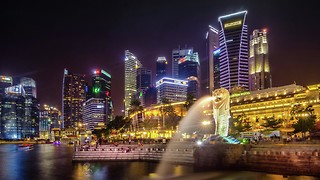Theatre: Animal Farm
James Taylor enjoyed this inventive production of Orwell’s classic

With creative dramatisation and subtle nuance befitting the genius of the original work, this adaptation of Orwell’s dystopian Soviet satire ticked all the boxes. Comprehensively incorporating the novel’s plot, messages and symbolism, Masterson presents us with a condensed product, which accentuates the power and punch of its familiar themes.
My first sight on entering the Homerton College Auditorium was of a sullen, brooding figure sitting centre-stage, alone, who eyed me and every other member of the audience sternly as we moved to take our seats. This was Benjamin, the deeply bitter narrator, whose disquieting presence aptly set the tone for what was to come.
When the cast first ran on stage, snorting, barking and sniffing, I was initially worried. Was the whole performance going to be tinged with a hammy, childish feel? No – the actors formed a good group, and the oppressed animals' plight was convincingly and affectingly told. Henson played a nasty Squealer with a haunting similarity to Dolores Umbridge, skilfully conveying the character’s loud and vindictive manner without overacting. Other highlights included Thean’s heart-rending outburst of emotion at the sight of Boxer being taken to the knackers’ yard.
The characters of Snowball – Spence giving us a sensitive yet indecisive idealist vulnerable to intimidation – and Napoleon – Phillips delivering a fearsome and imperious leader with political wile – were well-defined, developing as well as simply recreating Orwell’s prime movers.
The stage space was cleverly utilised to create a circular arrangement, with all action orientated around a centre-point. Napoleon and Snowballs’s addressing the animals from a raised platform in the middle of the stage, upon which the audience’s gaze converged, ingeniously reflected the hierarchical corruption of the egalitarian ideal, reinforcing the maxim that ‘some animals are more equal than others’. Unfortunately, the placing of seating, serving to reinforce this symbolism by its surrounding and enclosing of the action, was practicality sacrificed on the altar of overambitious artiness. In real terms, it meant that I was staring at actors’ backs for half of the performance. That said, I was consistently impressed by the inventive set design throughout. Particularly powerful is the scene where the animals discover the bloody carcasses of their slaughtered friends after upon the defeat of the oppressive Mr Jones. The potent symbolism was vividly conveyed in genuinely horrific fashion by the eerie, silent descent of these butchered bodies.
Dialogue was layered. The audience are distanced from the action of the farm via a frame narrative mediated by Benjamin, who both participates within the story and conveys its meaning in the abstract, acting as an internal and external voice. His orbital pattern of movement around the centre served to heighten a sense of the rebellious farm’s enclosure and insularity, an effect further reinforced by the gradual dimming of peripheral lighting.
Masterson could probably have gone further with the music, but what was there worked well. Ominous synthesised bass drones playing over the idealistic singing of Beasts of England created a suitably sinister disharmony, and high-pitched alternating thirds effected a melancholic mood throughout.
While a faithful and creative dramatisation of the book’s renowned messages, however, there was little attempt to draw any fresh meaning from the text. Perhaps the theatrical conception and direction were timid, and spice could have been added to distinguish it from Orwell’s original. These are minor qualms, however. Cast and crew must be credited for this compelling recreation, which possesses both colour and depth.
 News / Students form new left-wing society in criticism of CULC3 September 2025
News / Students form new left-wing society in criticism of CULC3 September 2025 News / Tompkins Table 2025: Trinity widens gap on Christ’s19 August 2025
News / Tompkins Table 2025: Trinity widens gap on Christ’s19 August 2025 News / Cambridge’s tallest building restored to former glory1 September 2025
News / Cambridge’s tallest building restored to former glory1 September 2025 News / Council rejects Wolfson’s planned expansion28 August 2025
News / Council rejects Wolfson’s planned expansion28 August 2025 Interviews / GK Barry’s journey from Revs to Reality TV31 August 2025
Interviews / GK Barry’s journey from Revs to Reality TV31 August 2025








